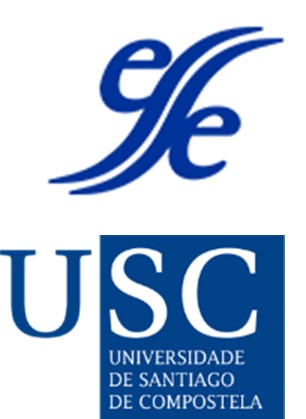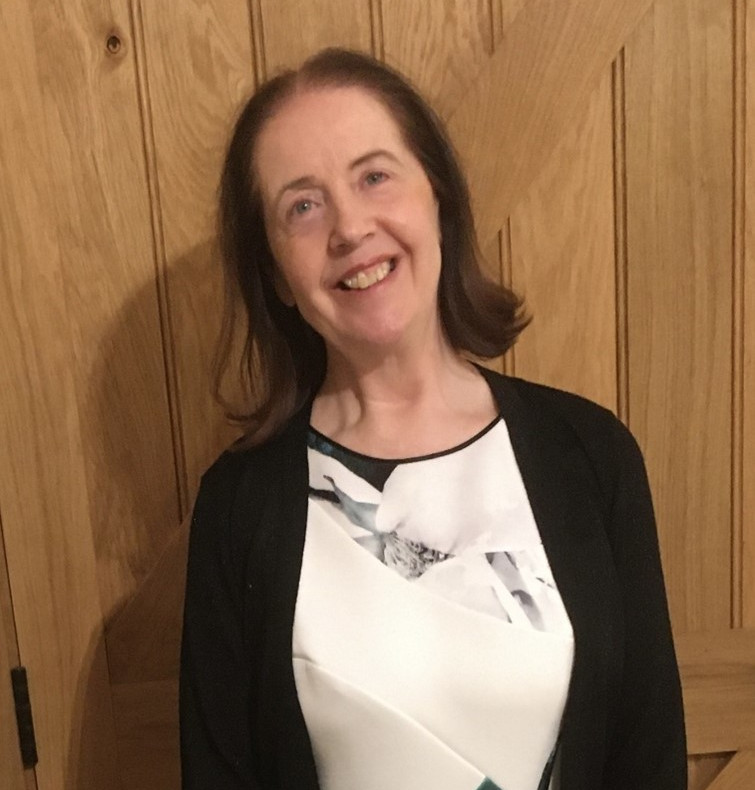
ESSE Conference
31st August - 4st September 2026
Santiago de Compostela, Spain


ESSE Conference
31st August - 4st September 2026
Santiago de Compostela, Spain


Karen Corrigan is an Honorary Member of the Royal Irish Academy and Professor of Linguistics and English Language at Newcastle University, UK. She has also held a number of visiting positions, most recently as Distinguished Visiting Professor, University of Kyoto (2025). She has research interests in corpus creation, digitization and open science leading to Creating and Digitizing Language Corpora, Volume 1: Synchronic Databases (2007, Palgrave, co-edited with J.C. Beal & H.L. Moisl); Creating and Digitizing Language Corpora, Volume 2: Diachronic Databases (2007, Palgrave, co-edited with J.C. Beal & H.L. Moisl); Creating and Digitizing Language Corpora, Volume 3: Databases for Public Engagement (2016, Palgrave, co-edited with A. Mearns). Her most recent projects, though, have focused on two themes with particular reference to the languages and dialects of Ireland: (i) Language, migration and identity; (ii) Contact, change and variation. This research has been published internationally in journals such as Language and Society, English Language and Linguistics and English World-Wide. She is author of the monographs Irish English, Volume 1: Northern Ireland (Edinburgh University Press, 2010) and Linguistic Communities and Migratory Processes: Newcomers Acquiring Sociolinguistic Variation in Northern Ireland (de Gruyter Mouton, 2021).

A.L. Kennedy was born in Dundee. She lived for almost 30 years in Glasgow and now stays in various places. She has won a variety of UK and international book awards, including a Lannan Award, the Costa Prize, The Heinrich Heine Preis, the Austrian State Prize for Literature, the Honorary Prize of the Austrian Book Trade, the Somerset Maugham Award and the John Llewellyn Rees Prize. She has twice been included on the Granta Best of Young British Novelists list. She has written 10 novels, 8 short story collections, 3 books of non-fiction and 4 books for children. She is a Fellow of the Royal Society of Arts, a Fellow of the Royal Society of Literature and a member of the Akademie der Kunst. She also writes for the stage, screen, TV and has created an extensive body of radio work including documentaries, monologues, dramas and essays. She also performs occasionally in one person shows and as a stand-up comic.

Jopi Nyman is Professor of English (since 2007) at the Philosophical Faculty, University of Eastern Finland, Joensuu Campus, and Director of UEF’s Borders, Mobilities, and Cultural Encounters Research Community. He completed his MA (1992), Lic. Phil. (1993), and PhD degrees (1996) in English at the University of Joensuu, and has also a Postgraduate Diploma in Cultural Studies: History and Theory (University of East London, 1995) and a second doctoral degree (DSocSc) in Sociology (University of Joensuu, 2005). He has been a British Council Fellow at the University of East London (1994–95) and Visiting Professor at the University of Leeds (2013), and taught at various universities through the ERASMUS scheme. He is currently President of MESEA: Multi-Ethnic Studies: Europe and the Americas (2022–), has previous served as the President of the Nordic Association of American Studies and in various other roles in the academic community. He is an invited member of the European Academy of Sciences and Arts.
Jopi Nyman has published extensively on questions of national and cultural identity in Anglophone literatures. His most recent books include the coedited collections Temporalities and Subjectivities in Migration Literature in Europe (Lexington Books, 2024), Border Images, Border Narratives: The Political Aesthetics of Boundaries and Crossings (Manchester UP, 2021), Palimpsests in Ethnic and Postcolonial Literature and Culture: Surfacing Histories (Palgrave Macmillan, 2021), and Mobile Identities: Race, Ethnicity, and Borders in Contemporary Literature and Culture (CSP, 2020), and the monographs Engagements with Hybridity in Literature: An Introduction (Routledge, 2024; with Joel Kuortti and Mehdi Ghasemi), Equine Fictions: Human–Horse Relationships in Twenty-First Century Writing (CSP, 2019) and Displacement, Memory, and Travel in Contemporary Migrant Writing (Brill, 2017). Recent articles have been published in Journal of Borderlands Studies, Literary Geographies, and Postcolonial Text, and in several edited collections. His current research interests centre upon border narratives, transcultural literatures, and literary animals.